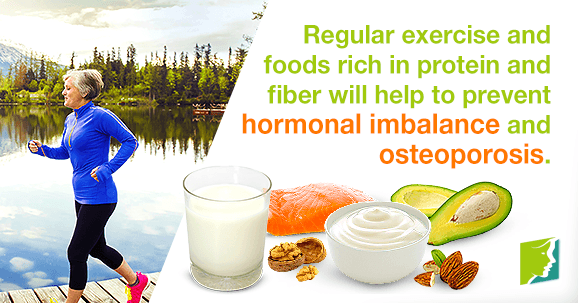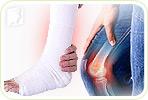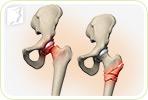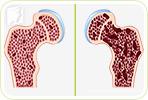Dropping levels of estrogen during menopause can lead to osteoporosis . It's important to lead a healthy life so hormone levels can remain somewhat balanced and bones retain their strength.

What Is Osteoporosis?
Osteoporosis is when bones weaken and lose strength. This causes them to become more fragile and likely to break. Osteoporosis in menopause is dangerous because many women don't know they have it until they suffer their first fracture or break. This is because there are few warning signs and symptoms of the bone disease.
When Do Women Have Low Estrogen Levels?
Women usually have low estrogen levels when transitioning through menopause. During menopause, estrogen becomes imbalanced, causing symptoms such as hot flashes, irregular periods, and vaginal dryness.
How Are Low Estrogen Levels and Osteoporosis Linked?
Low estrogen levels can lead to increased bone decay and osteoporosis. Estrogen helps to regulate bone cells called osteoblasts, which are responsible for building new bone. When estrogen levels drop, fewer cells are produced and bone is lost, but not replaced.
Can Low Estrogen Levels and Osteoporosis Be Prevented?
Osteoporosis prevention can take many forms. It's important to start by balancing fluctuating hormone levels as much as possible.
Eat a balanced diet
Eating nutritious foods can help combat both low estrogen levels and bone loss. During menopause, an ideal diet should be rich in fruits, vegetables, protein, and fiber. Getting enough calcium and vitamin D is also critical in maintaining bone density. The following foods can help balance hormone levels and prevent osteoporosis.
- Yogurt
- Cheese
- Milk
- Fish
- Nuts and seeds
- Avocados
Exercise regularly
Try to exercise regularly for at least 30 minutes, five times a week. Exercise is not only good for overall health, but helps restore hormone levels, enhances one's mood, and can keep bones strong. To focus on bone health, incorporate some strength and resistance training into their routine. A combination of different exercises will help ensure bone health and prevent other menopausal symptoms, such as hot flashes and night sweats.
More Information
These are just a few activities to help maintain overall health. If you think that you might be suffering from osteoporosis, please consult your doctor. For further information on how to treat osteoporosis effectively, follow the link above.
Sources
- "Menopause and Osteoporosis". Cleveland Clinic. http://my.clevelandclinic.org
- "What You Need to Know about Osteoporosis". American Physical Therapy Association. www.apta.org.
- "Calcium and Healthy Bones". New York State Department of Health. www.health.state.ny.us.
- "Prevention: Who's at Risk". National Osteoporosis Foundation. www.nof.org.



